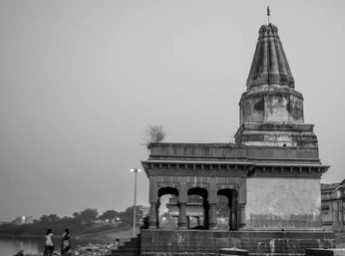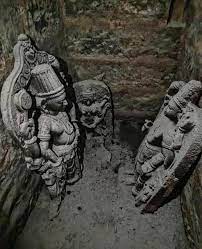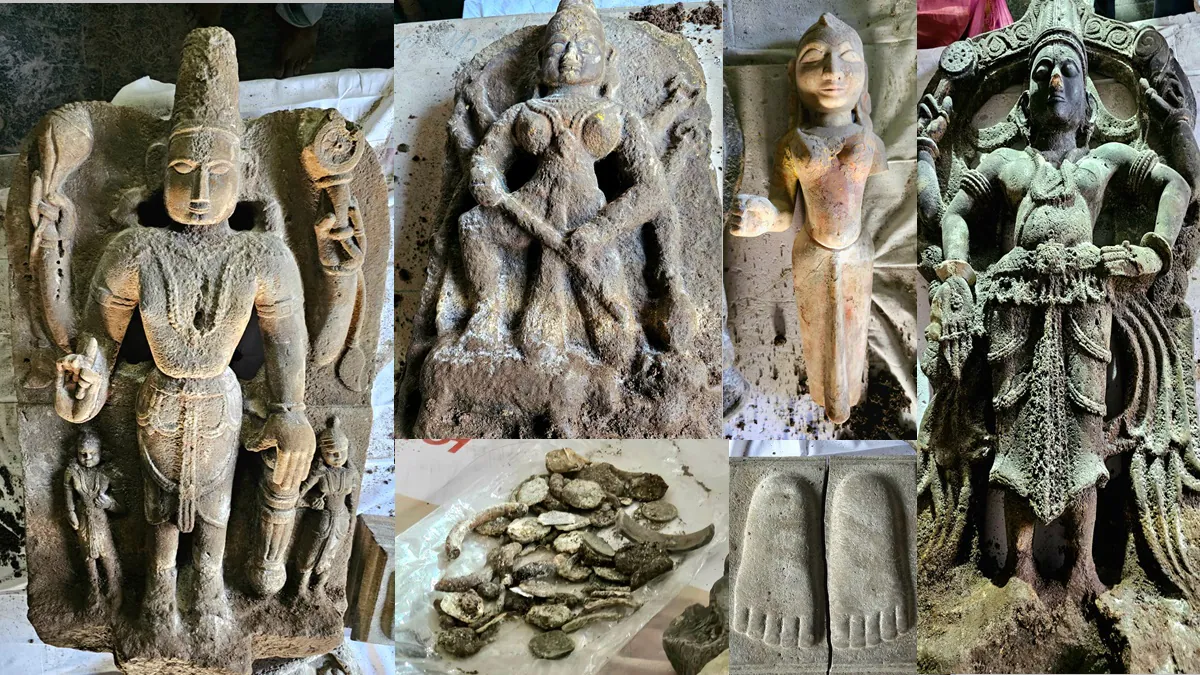MAHARASHTRA ACT NO. IX OF 1974
THE PANDHARPUR TEMPLES ACT, 1973
An Act to provide for the abolition of all hereditary rights and privileges of ministrants and priestly classes functioning in the Temples of Vitthal and Rukmini at Pandharpur, for the acquisition of such rights and privileges, and for their vesting in a Committee established for this purpose...
HISTORICAL SIGNIFICANCE
The Vithal Rukmini Temple is a revered spiritual site dedicated to Lord Vithoba (a form of Lord Vishnu) and Goddess Rukmini. The temple, known for its architectural beauty and deep-rooted history, has been a center of devotion for centuries.

Recent Discoveries & Archaeological Significance
Recent excavations around the temple have unearthed significant ancient sculptures and artifacts, shedding light on the temple’s glorious past. The recovered idols depict various deities, intricate carvings, and sacred symbols, highlighting the rich heritage of the region.

Recovered Artifacts & Sculptures
- Exquisite stone idols of Lord Vishnu, Goddess Rukmini, and other deities.
- Ancient coins and inscriptions, hinting at the temple’s historical and economic importance.
- Sacred footprints carved in stone, possibly representing divine presence in the area.

CHAPTER I - PRELIMINARY
1. This Act shall be called the Pandharpur Temples Act, 1973.
2. It shall come into force on a date specified by the State Government through a notification in the Official Gazette, with different dates possible for different provisions.
Definitions
General Terms
- "Appointed day" – The date when specific provisions of this Act take effect, as notified by the government.
- "Authorized officer" – An officer not below the rank of Deputy Charity Commissioner or equivalent, appointed by the State Government.
- "By-laws" – Regulations framed by the Committee under this Act.
- "Committee" – The governing body established under Section 21.
- "District Court" – The District Court at Sholapur.
- "Executive Officer" – The officer appointed under Section 33 to manage temple affairs.
- "Income" – Net earnings from hereditary rights before the appointed day.
- "Occasional services" – Special rituals beyond daily services, listed in Schedule B.
- "Person having interest" – An individual entitled to compensation for abolished hereditary rights under this Act.
- "Prescribed" – As specified by the rules under this Act.
- "Public Trusts Act" – The Bombay Public Trusts Act, 1950.
- "Registered trusts" – Trusts listed in Schedule C, including amalgamated or added trusts.
Hereditary Roles and Responsibilities
- "Badves" – Hereditary priests managing the Temple of God Vitthal, as per court rulings, without ownership rights.
- "Benari" – Individuals with hereditary rights to chant Vedic hymns and receive offerings during temple rituals.
- "Dange" – Hereditary macebearers maintaining order during temple rituals and processions.
- "Divaskari Badva (Utpat)" – Priests responsible for collecting daily offerings.
- "Dingre" – Individuals with hereditary rights to prepare temple floors and decorations.
- "Diwate" – Hereditary torchbearers assisting in temple rituals.
- "Hardas" – Perform religious chants (aratis), kirtans, and participate in key ceremonies.
- "Kolis" – Claim hereditary rights to worship four temple lingas.
- "Kshetropadhye" – Guide devotees during temple visits.
- "Pujari" – Performs direct worship, including dressing the idol and offering prayers.
- "Paricharak" – Assists in temple rituals, including light waving and yajman services.
- "Parivar Devatas" – Associated deities, including carvings, paintings, and idols related to God Vitthal or Goddess Rukmini.
- "Sevadharis" – Hereditary temple servants performing sevas (services).
Temple Services and Endowments
- "Daily services" – Routine temple rituals as specified in Schedule A.
- "Endowment" – Includes all movable and immovable property dedicated to the temple or its services.
CHAPTER II - ABOLITION OF HEREDITARY RIGHTS & PAYMENT OF COMPENSATION
1. Abolition of Rights (Section 4)
From the appointed day, all hereditary rights of Badves, Utpats, Sevadharis, Kshetropadhyes, Kolis, and others in managing temple affairs, receiving offerings, or performing services are abolished.
These rights now vest in the Committee.
All existing committees or bodies managing temple affairs before the appointed day cease to function.
2. Consequences of Abolition (Section 5)
- Temple management, administration, and property transfer to the Committee.
- Jewelry and valuables must be handed to the Sub-Treasury at Pandharpur within 48 hours.
- Former right-holders cannot demand offerings or perform hereditary services.
- The State Government will fund temple services for up to 90 days.
- All pending legal cases on hereditary rights will be dismissed.
3. Compensation & Claims (Sections 6-10)
- Eligible individuals listed in Schedule D will receive compensation.
- Those with management-only rights (without income entitlement) are not eligible.
- Claims must be filed within 90 days, and disputes may be taken to District Court.
- Compensation is capped at 2.5 times the average annual income (1958-1969) plus 15%.
4. Legal Remedies & Appeals (Sections 11-17)
- Disputes go to District Court, which will issue a binding order.
- Appeals can be made to the High Court.
5. Payment & Deposits (Sections 18-20)
- The State Government provides funds, and payments are made unless disputed.
- Disputed amounts are deposited in District Court for resolution.
- If payment is delayed, 4% annual interest is applicable.
CHAPTER III: THE EXECUTIVE OFFICER AND ESTABLISHMENT
Appointment & Tenure
The State Government appoints an Executive Officer for a 3-year term, eligible for reappointment unless removed. Temporary vacancies are filled by the Government.
Eligibility & Removal
Must be a Hindu devotee of God Vitthal & Goddess Rukmini, from active or retired State Government service (not below Assistant/Deputy Collector rank). Can be a full-time or additional-duty officer. The Government may suspend or remove the officer suo motu or on the Committee’s recommendation.
Powers & Responsibilities
- Acts as Secretary & Principal Officer of the Committee.
- Manages temple records, properties, and offerings collection.
- Appoints officers/employees, leases temple property (max 1 year), calls tenders (₹5,000 limit), and handles emergency repairs.
- Decides employee disputes (appeal to Committee).
- Can undertake emergency actions for temple upkeep and report them to the Committee and Charity Commissioner.
- Prepares and submits a duty schedule for temple staff to the Committee for approval.
Pay & Service Conditions
The Executive Officer is a State Government servant, paid from the Consolidated Fund. Other employees are Committee servants, with pay & conditions set by the Committee, subject to Charity Commissioner approval. The temple fund reimburses the State Government for the Executive Officer’s salary.
Law & Order Powers
The Executive Officer has District Magistrate powers for law and order within 1.6 km of the temple, as per the Criminal Procedure Code, 1973.
CHAPTER IV: BUDGET AND AUDIT
Budget Preparation and Approval
The Executive Officer shall prepare an annual budget estimate of receipts and expenditures of the endowment and registered trusts. The Committee may approve it with or without modifications. The approved budget must be submitted to the Charity Commissioner for sanction before the specified deadline.
Supplementary Budget
If modifications to the budget are necessary within the year, the Committee may submit a supplementary or revised budget to the Charity Commissioner, following the same approval process.
Audit of Accounts
The Charity Commissioner, with State Government approval, shall appoint an auditor annually. The auditor's remuneration shall be paid from the Temple Fund. The audit report will be submitted to the Committee, with a copy sent to the Charity Commissioner, who may issue binding directions based on the report.
CHAPTER V: GENERAL
Protection of Acts Done in Good Faith
No suit, prosecution, or legal proceeding shall lie against any person for acts done in good faith under this Act.
Power to Make Rules
The State Government may make rules for carrying out the purposes of this Act, which must be published in the Official Gazette.
Repeal and Savings
Any laws inconsistent with this Act are repealed. However, actions taken under the repealed laws shall remain valid.
